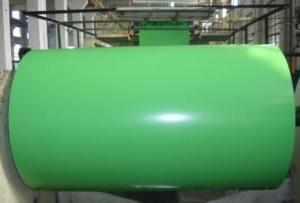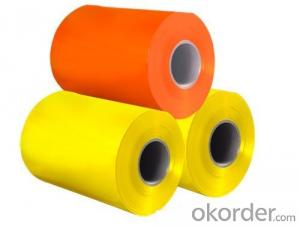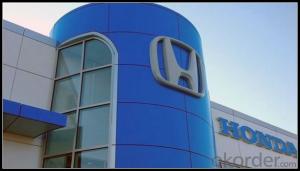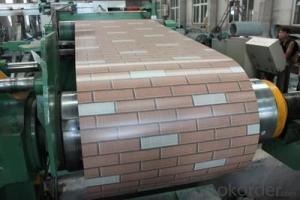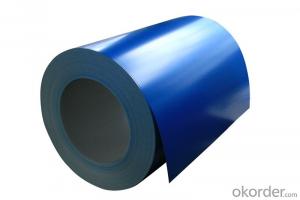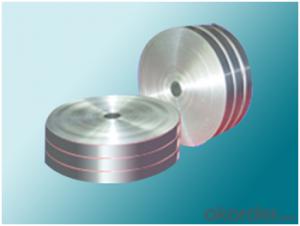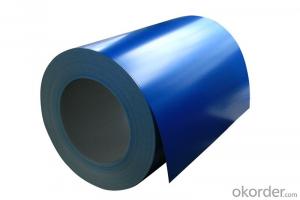Marine Grade PE Coated Aluminum Coils for Inner Decoration
- Loading Port:
- Shanghai
- Payment Terms:
- TT OR LC
- Min Order Qty:
- 5 m.t.
- Supply Capability:
- 20000 m.t./month
OKorder Service Pledge
OKorder Financial Service
You Might Also Like
Specification
1.Structure of Polyester Coated Aluminium Coils for Inner Decoration
PE Coated aluminium coils are widly used in decoration field. For the painting, it depends on the using evironment. If you use in the open air, we recommend the PVDF coated aluminium coils. This kind of painting can last 15-20 years. If you use in the room, we recommend PE coated aluminium coils. The price is much more competitive.
2. Main features of Polyester Coated Aluminium Coils for Inner Decoration
a.Competitive price---We have our own mills and can produce mill finished aluminium coils, so we can control the production cost better.
b.Professional after-sale service---We have more than 15 years exportation experience and you need not worry about the exporation problems.
c.Fast delivery time---We can control the delivery time within 35 days.
3. Image
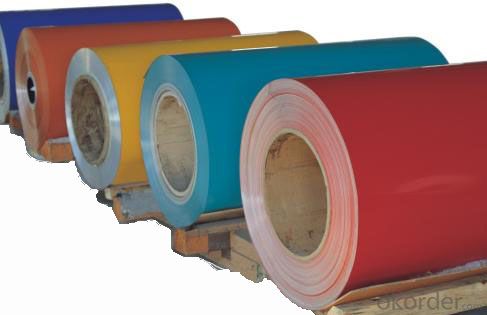
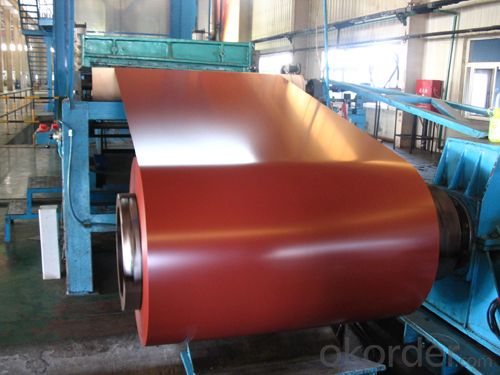
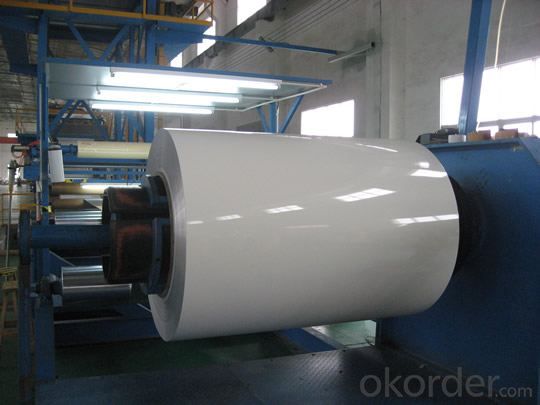
4. Product Specification
| Alloy | Temper | Coating Thickness | Thickness | Width |
| AA1100 | H14 | 20-25 MICRONS | 0.2MM-2MM | 1000MM-1500MM |
5.FAQ:
What is the quality standard?
---Usually our standard is GB3880-2006
What is the largest width?
---It is 2300mm
What is the MOQ?
---Usually we can accept 80 tons.
- Q: how many protons,nuetrons, and electrons are in aluminum?
- Aluminum is from group 3 and there for has 3 electrons in its outer shell and desires 5 to fill it. it is going to react with any aspects from group 5 that desire aluminum's 3 electrons.
- Q: Are 101 aluminum sheets suitable for cryogenic applications?
- No, 101 aluminum sheets are not suitable for cryogenic applications. While aluminum is generally a good choice for low-temperature environments due to its low thermal conductivity and high strength-to-weight ratio, 101 aluminum is not specifically designed to withstand the extreme temperatures associated with cryogenic applications. For cryogenic applications, materials such as aluminum alloys (e.g., 5083 or 6061) or specialized cryogenic alloys like stainless steel or titanium are typically used, as they possess enhanced properties to handle the extreme cold temperatures without compromising their structural integrity. Therefore, it is recommended to use materials specifically designed for cryogenic applications to ensure optimal performance and safety.
- Q: Can aluminum sheets be laminated?
- Yes, aluminum sheets can be laminated. Lamination is a process of bonding multiple layers together to create a composite material with enhanced properties. In the case of aluminum sheets, they can be laminated with other materials such as plastics, adhesives, or even other metals. This process can improve the strength, durability, and thermal or electrical conductivity of the aluminum sheets. Laminated aluminum sheets are commonly used in various industries, including construction, automotive, aerospace, and packaging, where the combination of different materials provides the desired characteristics for specific applications.
- Q: This question asks about the distinctions between aluminum sheets that are produced domestically versus those that are imported.
- <p>Yes, there can be differences between domestic and imported aluminum sheets. These differences may include quality standards, material composition, thickness, surface finish, and price. Domestic sheets are often produced to meet local standards and regulations, while imported sheets may adhere to different international standards. The manufacturing process and raw materials used can also vary, leading to differences in durability, strength, and workability. Additionally, imported sheets might have different certifications or come from countries with lower production costs, which can affect the price. However, it's important to note that not all imported aluminum sheets are of lower quality; some may be of higher quality or have specific characteristics that are not available domestically.</p>
- Q: Can aluminum sheets be used for reflective purposes?
- Aluminum sheets possess the capability to serve reflective purposes. Being a metal with exceptional reflectivity, aluminum showcases both a glossy and sleek surface. Its reflectivity index is considerably high, rendering it an impeccable substance for the reflection of both light and heat. Numerous reflective functions are often accomplished through the usage of aluminum sheets, including mirror production, solar panel assembly, lighting fixture manufacture, and insulation creation. Furthermore, owing to its reflective attributes, aluminum sheets are extensively employed in the construction sector to enhance energy efficiency by reflecting sunlight and curtailing heat absorption.
- Q: What specific criteria or conditions must be met when utilizing high-quality aluminum sheets in construction?
- <p>High-quality aluminum sheets used in construction projects require adherence to specific standards. They must possess high strength, corrosion resistance, and durability to withstand environmental conditions. Compliance with industry standards such as ASTM or ISO is crucial. Additionally, the sheets should be compatible with other construction materials and meet safety regulations. Proper installation techniques and qualified personnel are also essential to ensure the integrity and longevity of the construction project.</p>
- Q: Can aluminum sheets be used in the automotive industry?
- Aluminum sheets indeed find application in the automotive sector. Being a lightweight and sturdy material, aluminum offers several advantages when it comes to manufacturing automobiles. Car bodies, hoods, doors, and other structural components are commonly produced using aluminum. This helps in reducing the weight of the vehicle, resulting in improved fuel efficiency and enhanced performance. Furthermore, aluminum exhibits remarkable resistance to corrosion, making it ideal for vehicles that face harsh weather conditions. Moreover, aluminum sheets are easily formed, welded, and joined, which adds to their versatility and suitability for various automotive purposes. Consequently, the automotive industry widely embraces the utilization of aluminum sheets due to their numerous benefits.
- Q: 6061-T6 can aluminum sheets be bent?
- You ask if the two batch of aluminum material has been aging, the hardness of the aluminum after aging is higher than before the aging. Another aluminum material from the extrusion after the storage time and environment also related. You can measure the hardness of the two batch of aluminum.
- Q: I don't know if the electrons are being passed from my hand to the aluminum or from the aluminum to my hand.Thanks
- Aluminum is a metal and a good conductor of electricity. If you touch it, it will get grounded, so it will be neutral. You cannot charge a metal up by touching it with your hand unless you are not grounded yourself. If you are standing on a piece of plastic, say, then it will take whatever charge is on you. If you are positive, it will become positive. If you are negative, it will become negative. But you must be insulated from ground to do that. If you are touching the ground then any charge on the aluminum will just flow out of the metal through you to ground and the aluminum will stay neutral
- Q: Is it possible to use aluminum sheets as a material for exterior wall covering?
- <p>Yes, aluminum sheets can be used for exterior cladding. They are known for their durability, resistance to corrosion, and low maintenance requirements. Aluminum is lightweight, which makes it easier to install compared to heavier materials. It also has good thermal properties, helping to insulate buildings. Additionally, aluminum can be coated with various finishes, allowing for a wide range of aesthetic options. However, it's important to ensure proper installation and sealing to prevent water infiltration and to maintain the cladding's performance over time.</p>
Send your message to us
Marine Grade PE Coated Aluminum Coils for Inner Decoration
- Loading Port:
- Shanghai
- Payment Terms:
- TT OR LC
- Min Order Qty:
- 5 m.t.
- Supply Capability:
- 20000 m.t./month
OKorder Service Pledge
OKorder Financial Service
Similar products
Hot products
Hot Searches
Related keywords
